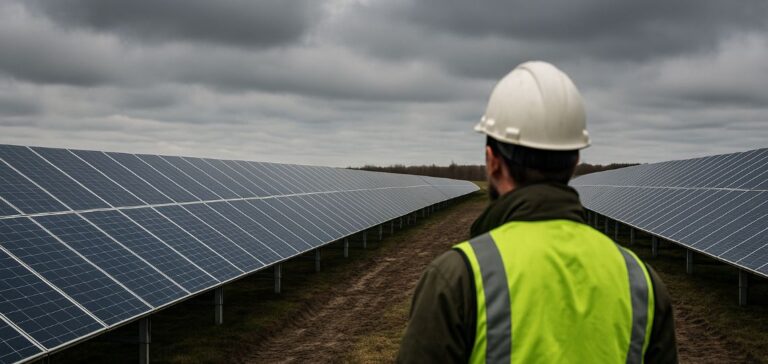Danish company Nordic Solar has signed a non-recourse financing agreement with Swedbank in Lithuania for an undisclosed amount in the double-digit million-euro range. The funding will support the construction of a new solar park in Švenčionys, located in the northern part of the country. The project, nearing completion, is scheduled to be connected to the national grid this spring, becoming the second solar park developed by Nordic Solar in Lithuania.
With a production capacity of 80 megawatt-peak (MWp), the Švenčionys site is expected to supply electricity to more than 35,000 households. This project follows the Molètai solar park, which was commissioned in 2024 and remains the largest in the country, with a capacity of 100 MWp. The financing from Swedbank is being provided prior to project completion and will cover construction costs under a non-recourse structure, with no personal or external guarantees beyond the project’s assets.
Regional expansion and patented technology
The new solar park is built on a steel substructure patented by Nordic Solar, designed to optimise the capture of sunlight through bifacial modules. This technology, already implemented in the Molètai project, enhances energy output by capturing reflected light beneath the panels. Nordic Solar’s proprietary system is protected by a European patent, strengthening its technological position in the Baltic energy market.
The renewed collaboration with Swedbank follows the financial institution’s prior involvement in the Molètai project. According to Tim Janusch Gadatsch, Chief Investment Officer at Nordic Solar, this cross-border cooperation contributes to increasing Lithuania’s solar energy share in its power mix.
Increasing institutional support
Ignas Mačeika, Member of the Board and Head of Corporate Customer Division at Swedbank Lithuania, stated that the partnership supports the country’s strategy to shift towards 100% locally produced electricity by 2030. Large-scale photovoltaic developments such as this are considered vital in reaching that objective, especially in a regional context of energy diversification.
Lithuania continues to strengthen its domestic electricity production infrastructure, with backing from European private sector players and technological solutions tailored to local geographic and climatic conditions. The Švenčionys project reflects a growing trend towards vertical integration in the solar energy sector, combining development, construction and operation within a single entity.






















